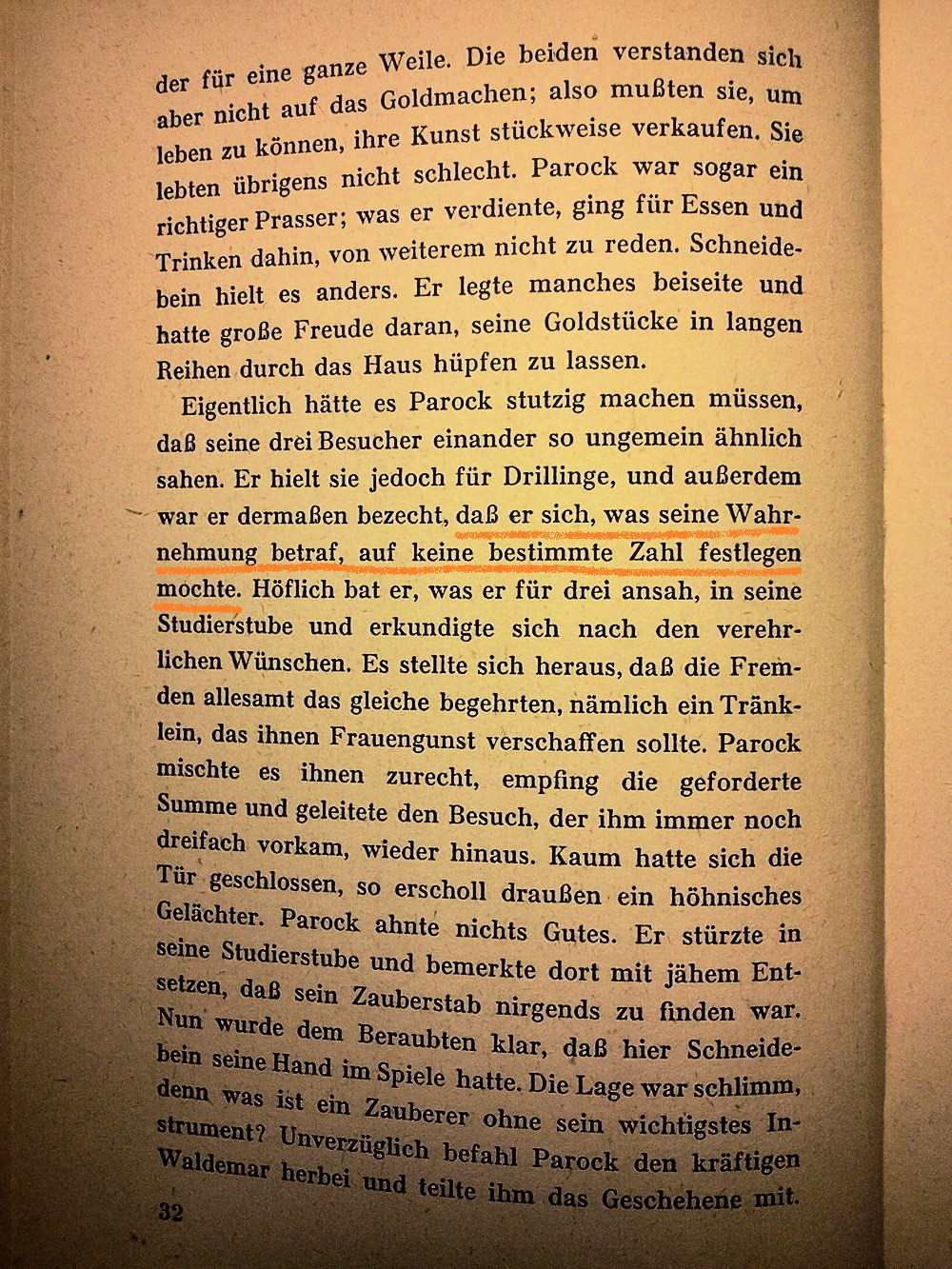This post is on the daß-clause in the following passage from Zwist unter Zauberern by Kurt Kusenberg.
In the story, two wizards, Parock and Schneidebein, are carrying on a feud. Parock receives a visit from three men looking remarkably alike posing as a customer, but actually they are Hem-Hem-Hem, spirits sent by Schneidebein. See picture at the bottom for more context.
Er [Parock] hielt sie [Hem-Hem-Hem] jedoch für Drillinge, und außerdem war er dermaßen bezecht, daß er sich, was seine Wahrnehmung betraf, auf keine bestimmte Zahl festlegen mochte.
QUESTION
I hope this question could be quickly got out of the way. Am I right to think keine. . . mochte here means be unwilling or hesitant, per this definition as found in Wiktionary?
4 (auxiliary, in negation, with infinitive) to be hesitant to (do something)
Ich mag sie nicht fragen. ― I am hesitant to ask her.Here comes my real perplexity. According to WordReference festlegen is either a transitive verb meaning determine or a reflex verb meaning commit oneself. If so, the following bits seem to compete for the same accusative spot:
sich
was seine Wahrnehmung betrafTherefore I might suppose the clause can be expanded to the following?
daß er sich auf keine bestimmte Zahl festlegen mochte und daß er, was seine Wahrnehmung betraf, auf keine bestimmte Zahl festlegen mochte.
That is to say, he did not want to commit himself to a definite number and did not want to determine what struck his senses to be a definite number. Is this an ad hoc solution?
Or maybe sich here is in the dative case, yielding the accusative spot to the was-clause? But the dictionary does not mention any such use of festlegen
In short, how should I understand the clause syntactically? Above all, please confirm that both sich and was seine Wahrnehmung betraf are in the accusative, if that is the case, and how the two are related syntactically speaking.
BACKGROUND

